
Bab El Kasbah: The Historic Heart of Tlemcen
Bab El Kasbah is a captivating neighborhood located in the ancient city of Tlemcen, Algeria. As you walk through its narrow, winding streets, you will be transported back in time. This historic area is home to a rich tapestry of cultural and architectural heritage, reflecting the diverse influences that have shaped Tlemcen over the centuries. One of the highlights of Bab El Kasbah is the imposing Kasbah, a fortress that stands as a testament to the city's medieval past. The Kasbah offers panoramic views of Tlemcen and the surrounding landscape, making it a perfect spot for photography enthusiasts. Inside, you'll find a maze of courtyards and passages that tell stories of a bygone era. The neighborhood is also known for its vibrant souks, where you can immerse yourself in the local culture. These bustling markets are filled with colorful textiles, traditional crafts, and aromatic spices. Take your time to explore and perhaps even pick up a unique souvenir to remember your visit. Aside from its historical and cultural attractions, Bab El Kasbah is a hub for local cuisine. The area is dotted with quaint cafes and restaurants where you can savor traditional Algerian dishes. Don't miss out on trying specialties like couscous, tagine, and sweet pastries. Whether you're a history buff, a foodie, or simply someone looking to soak up the local atmosphere, Bab El Kasbah has something for everyone. Its blend of history, culture, and local charm makes it a must-visit destination in Tlemcen.
Local tips in Bab El Kasbah
- Visit early in the morning to avoid the crowds and enjoy a more peaceful experience.
- Wear comfortable walking shoes as the streets are narrow and cobblestoned.
- Carry some local currency for purchases in the souks, as many vendors may not accept credit cards.
- Try to learn a few basic phrases in Arabic or French to communicate more easily with locals.
- Don't forget to bring a camera to capture the stunning views from the Kasbah.
Bab El Kasbah: The Historic Heart of Tlemcen
Bab El Kasbah is a captivating neighborhood located in the ancient city of Tlemcen, Algeria. As you walk through its narrow, winding streets, you will be transported back in time. This historic area is home to a rich tapestry of cultural and architectural heritage, reflecting the diverse influences that have shaped Tlemcen over the centuries. One of the highlights of Bab El Kasbah is the imposing Kasbah, a fortress that stands as a testament to the city's medieval past. The Kasbah offers panoramic views of Tlemcen and the surrounding landscape, making it a perfect spot for photography enthusiasts. Inside, you'll find a maze of courtyards and passages that tell stories of a bygone era. The neighborhood is also known for its vibrant souks, where you can immerse yourself in the local culture. These bustling markets are filled with colorful textiles, traditional crafts, and aromatic spices. Take your time to explore and perhaps even pick up a unique souvenir to remember your visit. Aside from its historical and cultural attractions, Bab El Kasbah is a hub for local cuisine. The area is dotted with quaint cafes and restaurants where you can savor traditional Algerian dishes. Don't miss out on trying specialties like couscous, tagine, and sweet pastries. Whether you're a history buff, a foodie, or simply someone looking to soak up the local atmosphere, Bab El Kasbah has something for everyone. Its blend of history, culture, and local charm makes it a must-visit destination in Tlemcen.
Unmissable attractions to see
Lalla Setti Plateau
Escape to Lalla Setti Plateau in Tlemcen for panoramic views, serene nature, and a touch of Algerian history and culture.
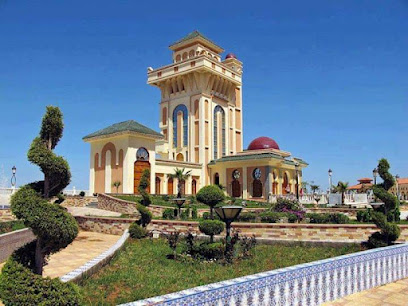
Leisure Park Lalla Setti
Escape to Leisure Park Lalla Setti in Tlemcen: breathtaking views, recreation, and cultural charm await on this mountain plateau.
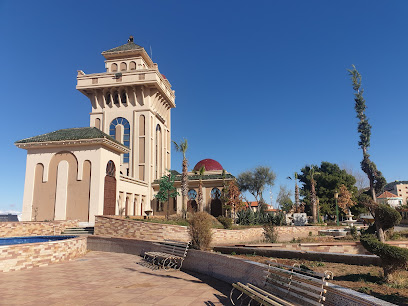
El Ourit Waterfalls
Discover El Ourit Waterfalls in Tlemcen: A serene escape featuring cascading waters, lush landscapes, and historical charm in Algeria's natural beauty.
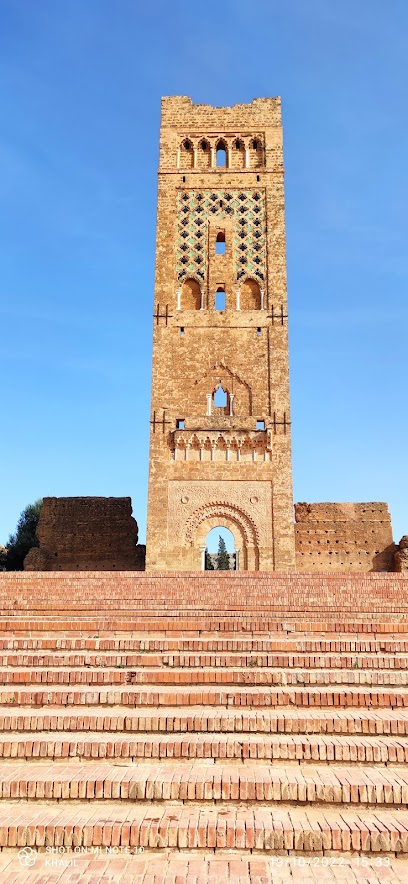
El Mechouar Palace
Explore El Mechouar Palace in Tlemcen, a royal residence with centuries of Algerian history, architecture, and cultural significance.
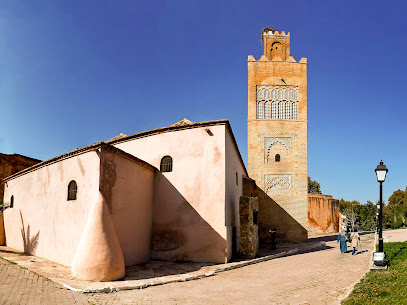
The Remains of Mansura Tlemcen
Explore the ruins of Mansura Tlemcen, a 13th-century city showcasing medieval military architecture and a glimpse into Algeria's rich history.
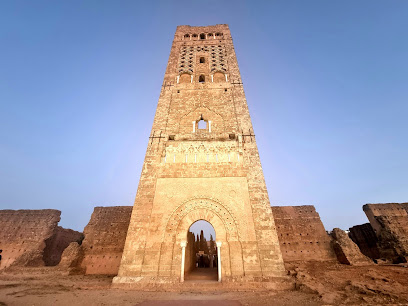
Great Mosque
Explore the Great Mosque of Tlemcen, a stunning example of Almoravid architecture and a symbol of Tlemcen's rich cultural heritage.
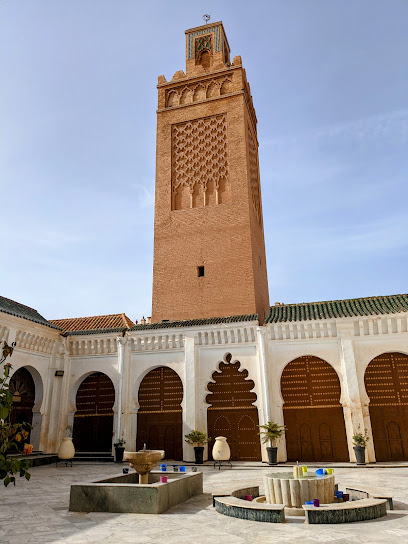
Grand Bassin
Escape to Grand Bassin in Tlemcen: a serene garden offering tranquility and natural beauty for a peaceful retreat from the city's hustle.
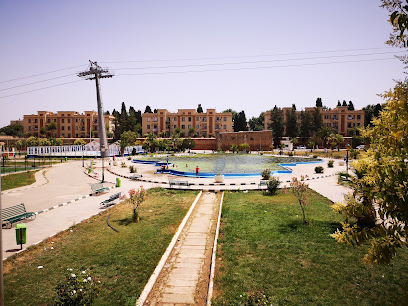
Hartoun Park
Escape to Hartoun Park, a verdant sanctuary in Tlemcen offering tranquility, recreation, and a refreshing connection with nature.
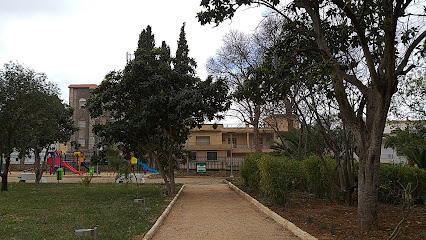
tlemcen National Park
Discover Algeria's hidden gem: Tlemcen National Park, where nature's beauty meets rich history and diverse wildlife.
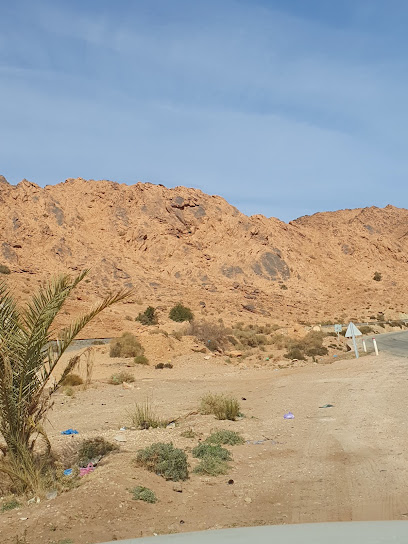
أعالي لوريط
اكتشف أعالي لوريط في تلمسان: مسارات المشي لمسافات طويلة الخلابة وشلالات الجزائر المذهلة.
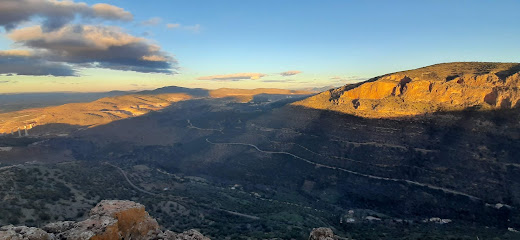
Essential places to dine
L'échappatoire
Discover authentic Mediterranean flavors at L'échappatoire in Tlemcen - an exquisite dining experience awaits.
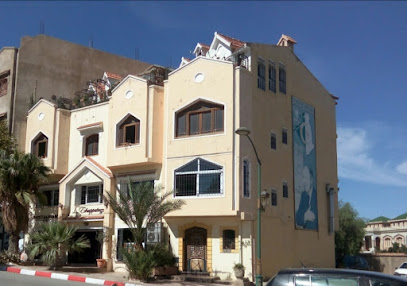
L'équinoxe
Discover L'équinoxe in Tlemcen - where Mediterranean flavors come alive in an inviting atmosphere perfect for every occasion.
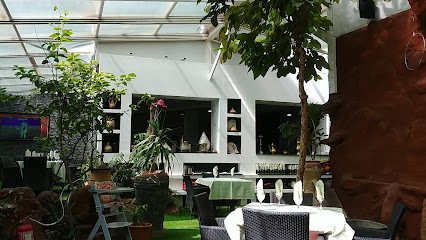
Ambiance Resto Café Hartoum
Savor authentic Algerian cuisine in a warm and inviting setting at Ambiance Resto Café Hartoum in Tlemcen.
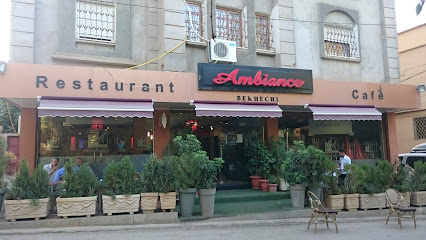
Le Loft
Discover authentic Mediterranean flavors at Le Loft in Tlemcen - where every meal tells a story of tradition and taste.
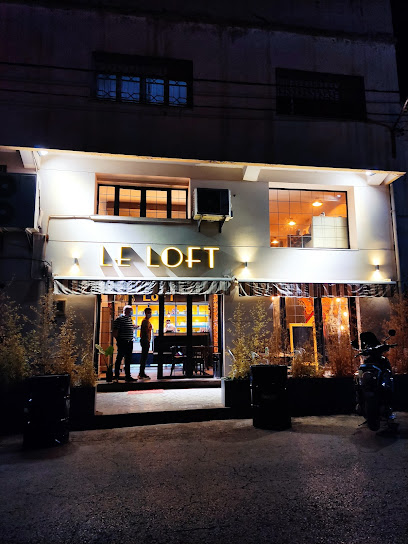
Restaurant Best Chicken
Experience the authentic taste of Algeria at Restaurant Best Chicken in Tlemcen – where flavor meets tradition.
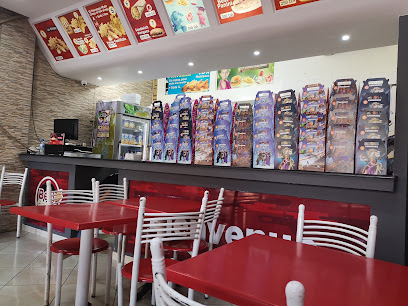
Restaurant Le Pizz’Wich
Experience authentic pizza flavors at Restaurant Le Pizz’Wich in Tlemcen - where every bite tells a story.
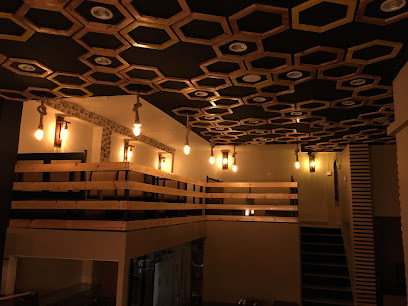
Le musée
Experience authentic Mediterranean cuisine at Le Musée in Tlemcen - a culinary haven with rich flavors and inviting ambiance.
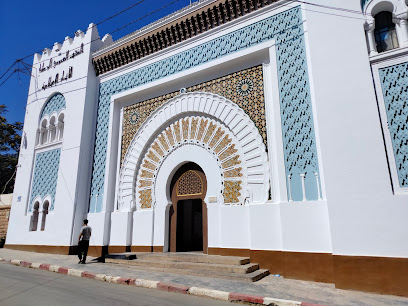
Vintage Burger
Discover the ultimate fast-food experience at Vintage Burger in Tlemcen - where flavor meets comfort in every bite.
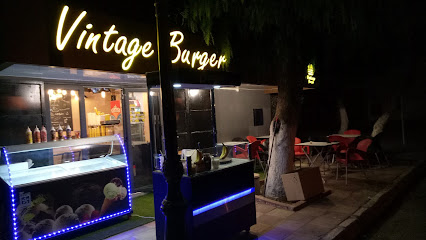
Le cinq
Experience authentic Algerian cuisine at Le Cinq in Tlemcen - where tradition meets flavor in a delightful dining atmosphere.
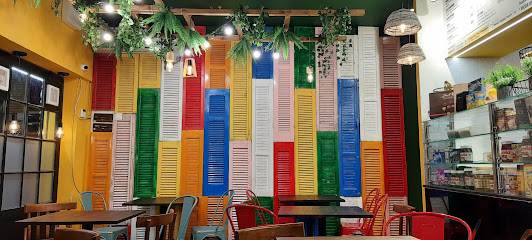
the grill
Experience authentic Algerian cuisine in Tlemcen at The Grill, where flavors come alive in a warm and inviting atmosphere.
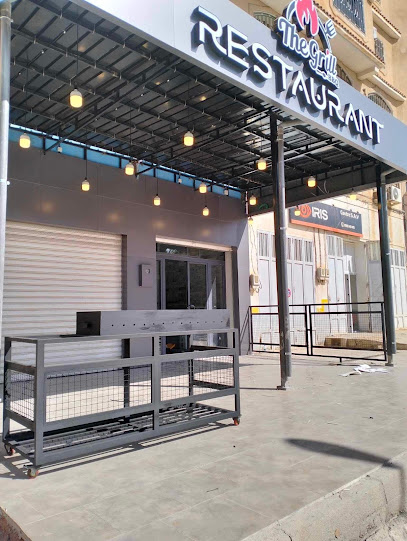
Markets, malls and hidden boutiques
La Table Du Marché Tlemcen
Explore La Table Du Marché Tlemcen, a vibrant shopping mall offering a unique blend of local culture and modern retail experiences in Tlemcen, Algeria.
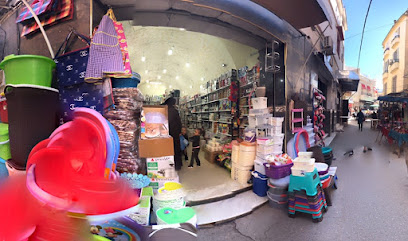
boutique el mejor
Discover the essence of local fashion at Boutique El Mejor, a stylish clothing store in Kiffane, offering unique apparel and a warm shopping experience.
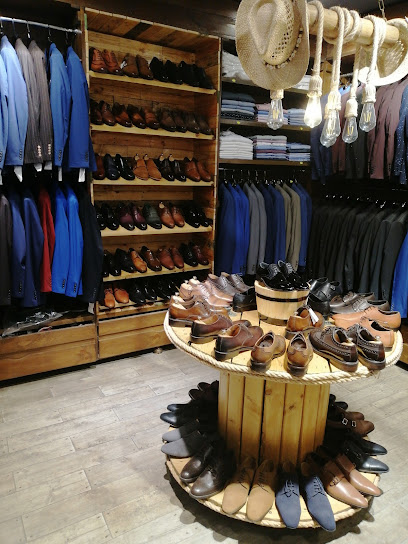
بيت الهدية تلمسان ( باب الجياد)
Explore exquisite jewelry at بيت الهدية تلمسان, Tlemcen's premier destination for handcrafted elegance and cultural treasures.
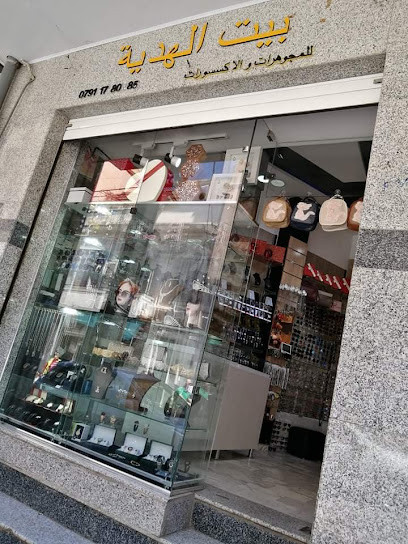
Boutique Sarah tlemcen
Explore the vibrant fashion scene at Boutique Sarah in Tlemcen, where local culture meets contemporary style in a chic shopping experience.
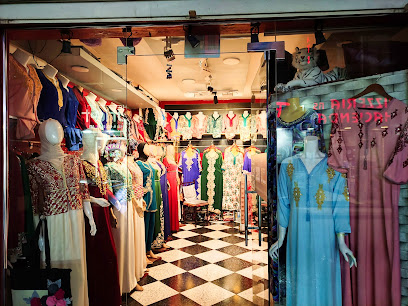
Olala Tlemcen
Discover Olala Tlemcen: where shopping meets culture in the heart of Tlemcen, Algeria, offering a unique retail experience for every traveler.

Algeria
Explore the historical beauty and vibrant culture of Tlemcen, Algeria, a hidden gem rich in art, architecture, and authentic experiences.
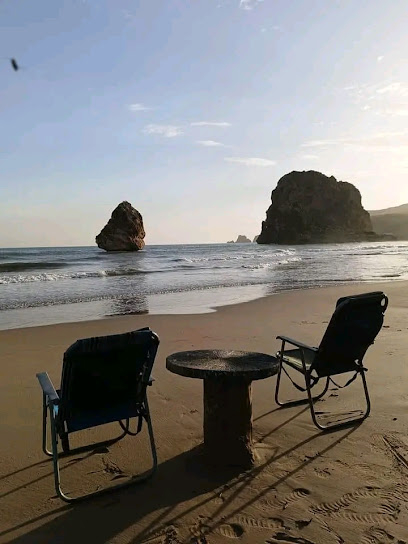
Best Déco
Discover unique souvenirs and local crafts at Best Déco, the must-visit gift shop in Tlemcen, Algeria.
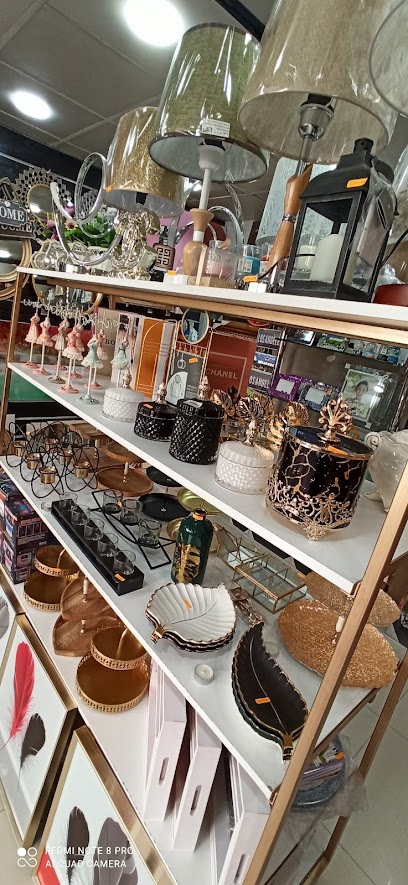
Shahin vêtements
Discover stylish women's fashion at Shahin Vêtements in Tlemcen, where quality meets contemporary design.

Tlemcen imama cité El bahja
Explore Tlemcen Imama Cité El Bahja: Your destination for unique gifts and authentic local crafts in the heart of Tlemcen, Algeria.

محلات المملكة لملابس النساء
Discover a unique blend of modern fashion and traditional elegance at محلات المملكة لملابس النساء, Tlemcen's premier women's clothing store.
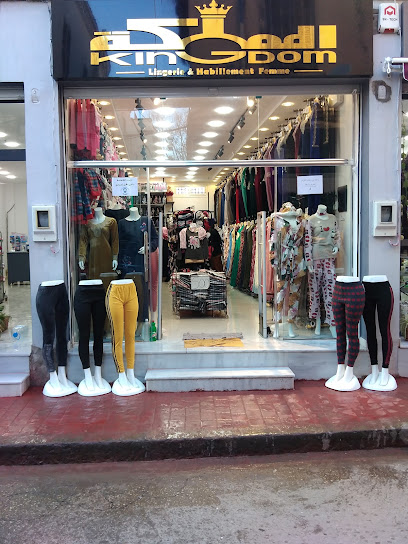
Essential bars & hidden hideouts
Renaissance Tlemcen Hotel
Discover the luxurious Renaissance Tlemcen Hotel, where modern comfort meets authentic Algerian charm in the heart of Tlemcen.
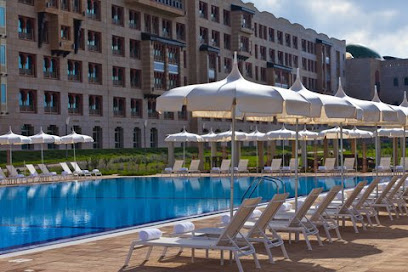
ibis Tlemcen
Discover the comfort of Ibis Tlemcen, your gateway to the rich culture and history of Tlemcen, Algeria.

Restaurant Marrakech
Experience the vibrant flavors of Morocco at Restaurant Marrakech, a culinary gem in Mansourah offering authentic dishes and a warm atmosphere.
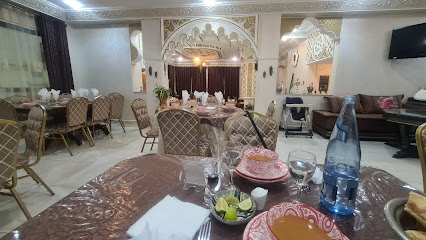
L'échappatoire
Experience the essence of Mediterranean cuisine in Tlemcen at L'échappatoire, where tradition meets modern culinary artistry.
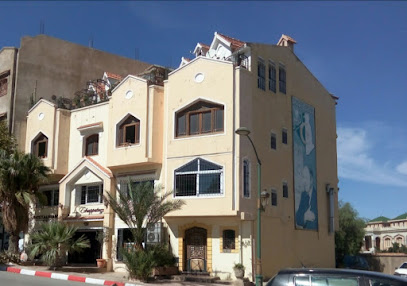
L'équinoxe
Experience the authentic taste of the Mediterranean at L'équinoxe, Tlemcen's culinary treasure, where fresh ingredients meet traditional recipes.
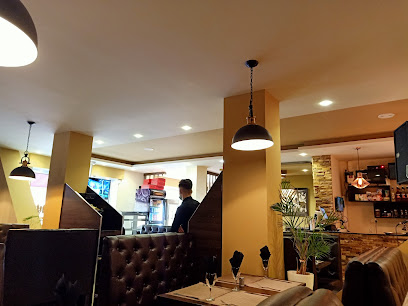
Ambiance Resto Café Hartoum
Discover the flavors of Tlemcen at Ambiance Resto Café Hartoum, where culinary tradition meets a charming atmosphere.
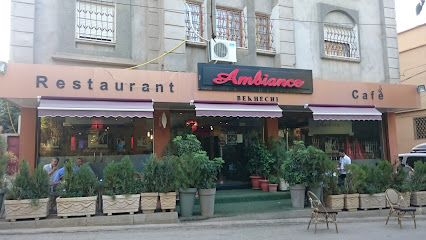
Hôtel Les Zianides
Discover the charm of Tlemcen at Hôtel Les Zianides, your gateway to comfort and cultural exploration in Algeria.

Le Loft
Experience a delightful taste of the Mediterranean at Le Loft in Tlemcen, where exceptional cuisine meets a warm and inviting atmosphere.
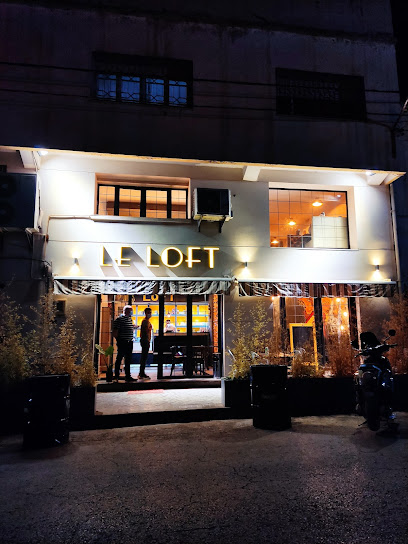
Hôtel Grand Bassin
Discover the elegance and comfort of Hôtel Grand Bassin, your perfect retreat in Tlemcen, Algeria.
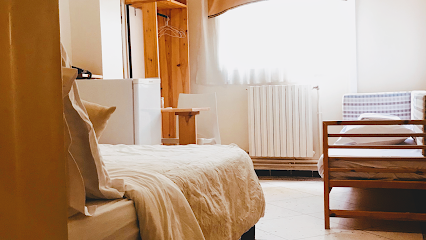
PARADISE
Experience the rich flavors of Mediterranean cuisine at PARADISE, a culinary haven in Tlemcen, perfect for food lovers and travelers alike.
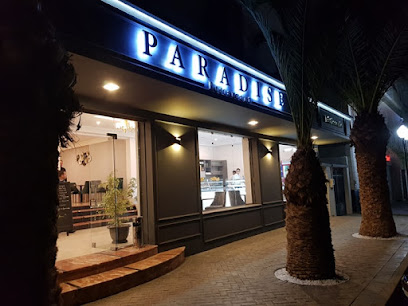
Restaurant casa gastro
Discover the culinary delights of Casa Gastro, a top barbecue restaurant in Mansourah, offering delicious grilled meats and a warm, inviting atmosphere.
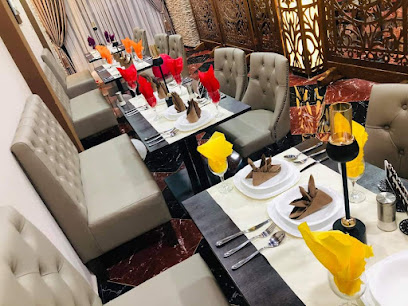
Crustycooking
Discover Crustycooking, Tlemcen's family-friendly restaurant serving delightful local and international dishes in a vibrant atmosphere.
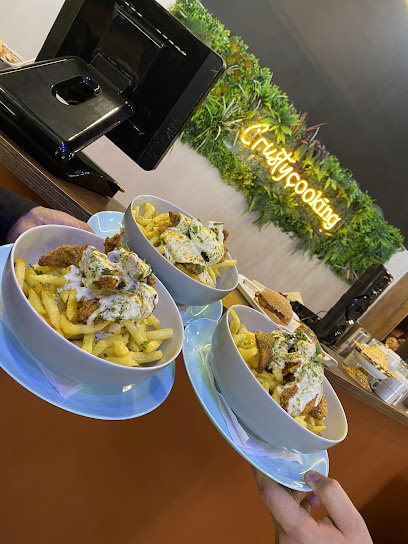
Local Phrases
-
- Helloمرحبا
[marhaba] - Goodbyeوداعا
[wadaa'an] - Yesنعم
[naam] - Noلا
[laa] - Please/You're welcomeمن فضلك
[min fadlik] - Thank youشكرا
[shukran] - Excuse me/Sorryعذرا
[aadhara] - How are you?كيف حالك؟
[kayfa halik?] - Fine. And you?بخير. وأنت؟
[bikhayr. wa ant?] - Do you speak English?هل تتكلم الإنجليزية؟
[hal tatakallam al'ingilizia?] - I don't understandلا أفهم
[laa afham]
- Helloمرحبا
-
- I'd like to see the menu, pleaseأريد أن أرى القائمة، من فضلك
[uriidu an ara alqaimah, min fadlik] - I don't eat meatأنا لا آكل اللحم
[ana laa aakulu allaham] - Cheers!في صحتك!
[fi sahtik] - I would like to pay, pleaseأود أن أدفع، من فضلك
[awadu an adfaa, min fadlik]
- I'd like to see the menu, pleaseأريد أن أرى القائمة، من فضلك
-
- Help!النجدة!
[alnajdah!] - Go away!انصرف!
[ansarif!] - Call the Police!اتصل بالشرطة!
[atasil bialshurta!] - Call a doctor!اتصل بالطبيب!
[atasil bialtabib!] - I'm lostلقد ضللت الطريق
[laqad dalalt altariq] - I'm illأنا مريض
[ana mariid]
- Help!النجدة!
-
- I'd like to buy...أود أن أشتري...
[awadu an ashtari...] - I'm just lookingأنا فقط أتطلع
[ana faqat atatalla] - How much is it?كم هو ثمنه؟
[kam huwa thamanuh?] - That's too expensiveهذا غالي جدا
[hatha ghali jiddan] - Can you lower the price?هل يمكنك خفض السعر؟
[hal yumkinuka khafd alsu'ar?]
- I'd like to buy...أود أن أشتري...
-
- What time is it?كم الساعة؟
[kam alsaa'ah?] - It's one o'clockالساعة الواحدة
[alsaa'ah alwahidah] - Half past (10)الساعة والنصف (10)
[alsaa'ah walnusf (10)] - Morningالصباح
[alusbah] - Afternoonالمساء
[almasa'] - Eveningالليل
[allayl] - Yesterdayأمس
[ams] - Todayاليوم
[alyawm] - Tomorrowغدا
[ghadan] - 1واحد
[wahid] - 2اثنان
[ithnan] - 3ثلاثة
[thulatha] - 4أربعة
[arba'ah] - 5خمسة
[khamsah] - 6ستة
[sittah] - 7سبعة
[sab'ah] - 8ثمانية
[thamania] - 9تسعة
[tis'ah] - 10عشرة
[asharah]
- What time is it?كم الساعة؟
-
- Where's a/the...?أين...
[ayn...] - What's the address?ما هو العنوان؟
[ma huwa al'unnwan?] - Can you show me (on the map)?هل يمكنك أن تريني (على الخريطة)؟
[hal yumkinuka an tarini (ala alkhareetah)?] - When's the next (bus)?متى يأتي الحافلة التالية؟
[mata yaati alhafilat altaalia?] - A ticket (to ....)تذكرة (إلى...)
[tadhkirah (ila...)]
- Where's a/the...?أين...
History of Bab El Kasbah
-
Bab El Kasbah, situated in Tlemcen, reflects the city's significant Ottoman heritage, particularly during the 16th and 17th centuries. This period saw the construction of many structures that exemplified Islamic architecture and urban planning, with Bab El Kasbah serving as a crucial gateway to the city. The Ottomans fortified Tlemcen, enhancing its strategic importance as a military and trade center in North Africa.
-
Throughout its history, Bab El Kasbah has been a melting pot of cultures, where Berber, Arab, and Spanish influences converged. The neighbourhood played a vital role in Tlemcen's reputation as a center of education and culture during the Almoravid and Almohad dynasties, particularly in the fields of science, philosophy, and art. This rich tapestry of cultures is evident in the architecture, language, and traditions that persist today.
-
During the medieval period, Bab El Kasbah was a bustling hub for trade, linking Tlemcen to other parts of the Maghreb and beyond. Its location made it a vital point for merchants and travelers. The bustling souks, or markets, in the area facilitated the exchange of goods such as textiles, spices, and ceramics, contributing to Tlemcen's prosperity and cultural exchange.
-
The French colonial period in the 19th and early 20th centuries brought significant changes to Bab El Kasbah. While many traditional structures were altered or destroyed, some colonial architecture blended with the existing styles, resulting in a unique aesthetic that reflects Tlemcen's complex history. This era also witnessed the marginalization of local artisans, as French economic policies favored imports over local craftsmanship.
-
In recent years, Bab El Kasbah has been the focus of restoration efforts aimed at preserving its historical and cultural significance. Initiatives to restore traditional buildings and promote local craftsmanship have emerged, highlighting the neighbourhood's role in Tlemcen's identity. These efforts are part of a broader movement to revitalize the region and attract tourism, showcasing the rich history and vibrant culture of Tlemcen.
Bab El Kasbah Essentials
-
Bab El Kasbah is centrally located in Tlemcen, making it accessible from various neighborhoods. From the city center, you can take a local taxi or a shared minibus (known as 'clandos') that frequently service the area. If you are arriving from Tlemcen's train station, taxis are readily available outside the station, or you can opt for a short walk if you prefer to enjoy the local scenery.
-
Bab El Kasbah is best explored on foot due to its narrow, winding streets and historical sites. Taxis and clandos are available for longer distances or if you wish to travel to other neighborhoods. Bicycles can be rented from local shops for a more adventurous way to explore the area. Public buses are also available but may not run as frequently as taxis.
-
Bab El Kasbah is generally safe for tourists, but standard precautions should be taken. It is advisable to avoid less populated areas at night and to keep your belongings secured. Areas near the outskirts of the neighborhood may have higher crime rates, so it's best to stay vigilant and avoid walking alone in secluded parts after dark.
-
In case of an emergency, dial 17 for police assistance or 14 for medical emergencies. There are local hospitals and clinics in Tlemcen, but it is advisable to have travel insurance that covers medical emergencies. For minor health issues, pharmacies are available in Bab El Kasbah, where you can get over-the-counter medications.
-
Fashion: Do dress modestly, especially when visiting mosques. Avoid shorts and sleeveless tops. Religion: Do respect local customs; remove shoes when entering a mosque. Public Transport: Do be polite and allow locals to board first. Don't make loud noises or disturb others. Greetings: Do greet people with 'Salam' (hello) and a handshake. Eating & Drinking: Do try local dishes and share food when invited. Don't eat in public during Ramadan or in front of those fasting.
-
To experience Bab El Kasbah like a local, visit the vibrant markets early in the morning for fresh produce and local delicacies. Engage with shopkeepers and ask about their products. Participate in local festivals if your visit coincides with one, as they are a great way to immerse yourself in the culture. Lastly, don't miss the opportunity to try traditional Tlemcen pastries at local bakeries.
Nearby Cities to Bab El Kasbah
-
Things To Do in Oujda
-
Things To Do in Oran
-
Things To Do in Almeria
-
Things To Do in Murcia
-
Things To Do in Málaga
-
Things To Do in Fes
-
Things To Do in Chefchaouen
-
Things To Do in Tetouan
-
Things To Do in Gorham's Cave Complex
-
Things To Do in Europa Point
-
Things To Do in St. Michael's Cave
-
Things To Do in Catalan Bay
-
Things To Do in Alameda Botanic Gardens
-
Things To Do in Alicante
-
Things To Do in Moorish Castle









